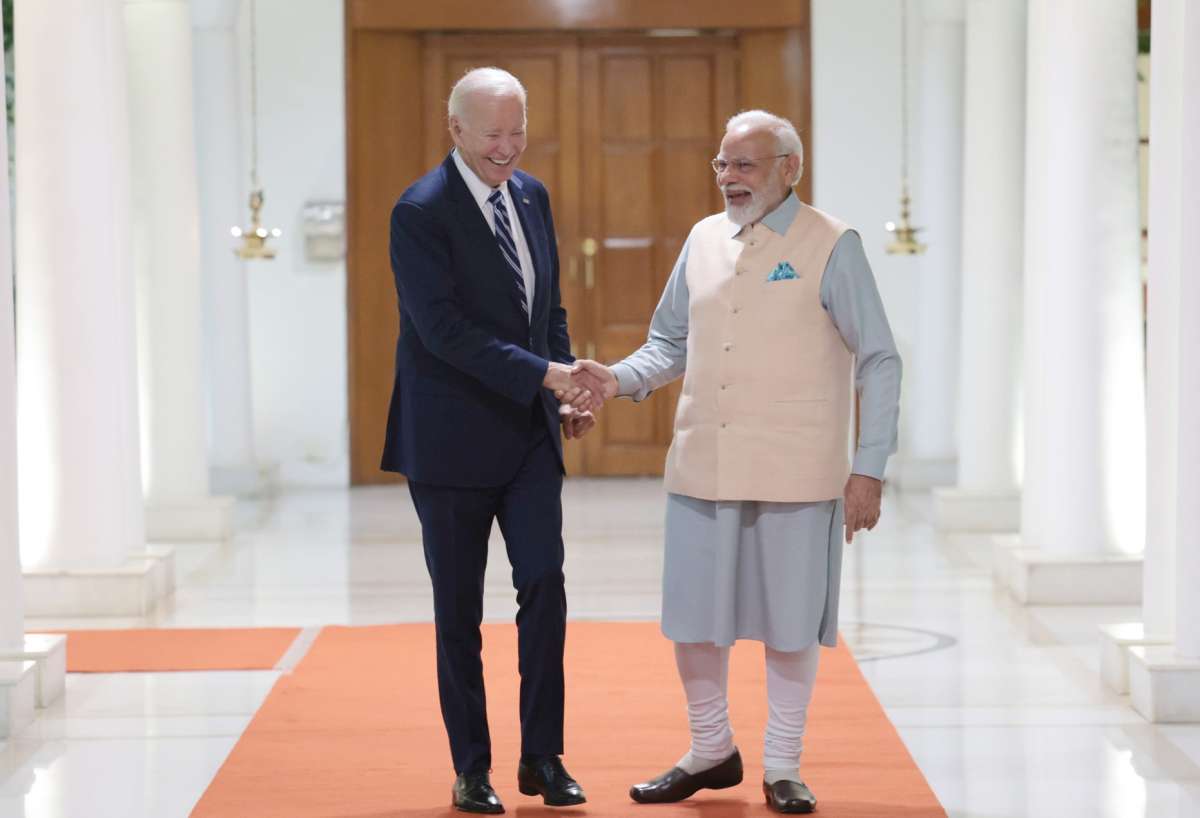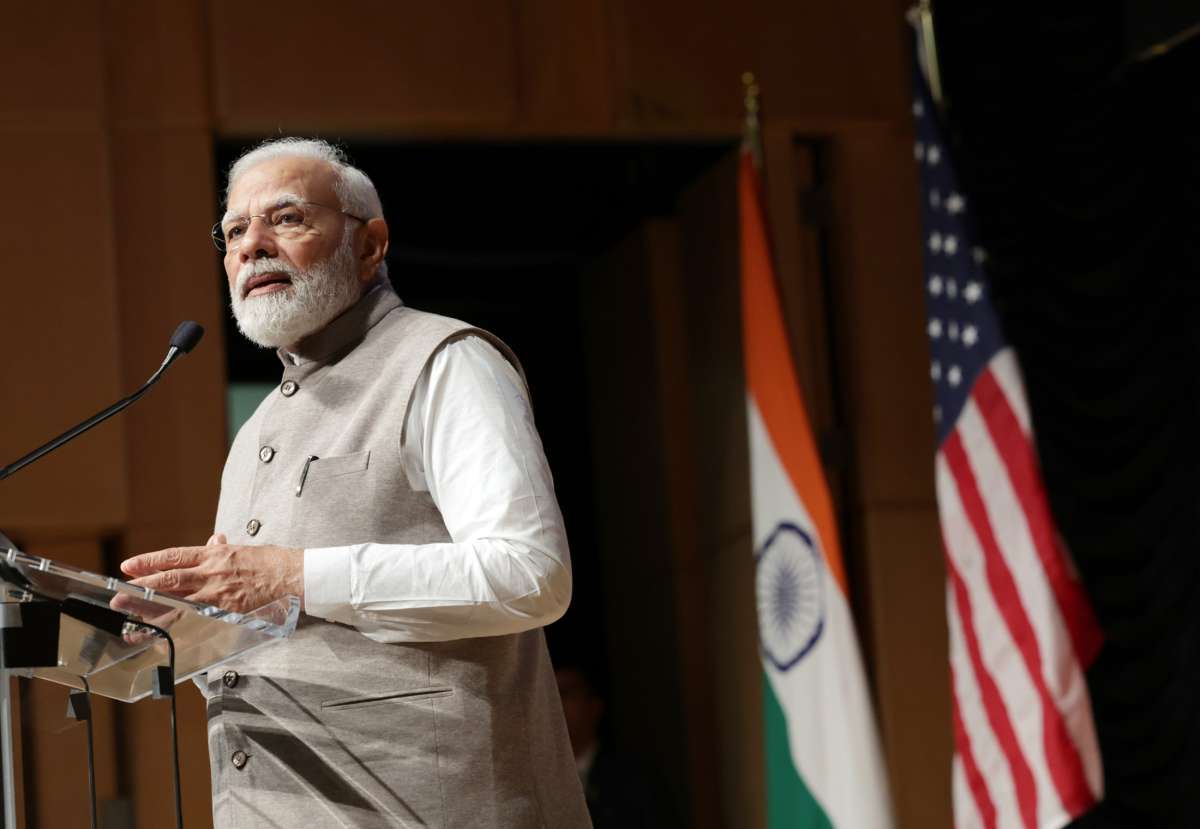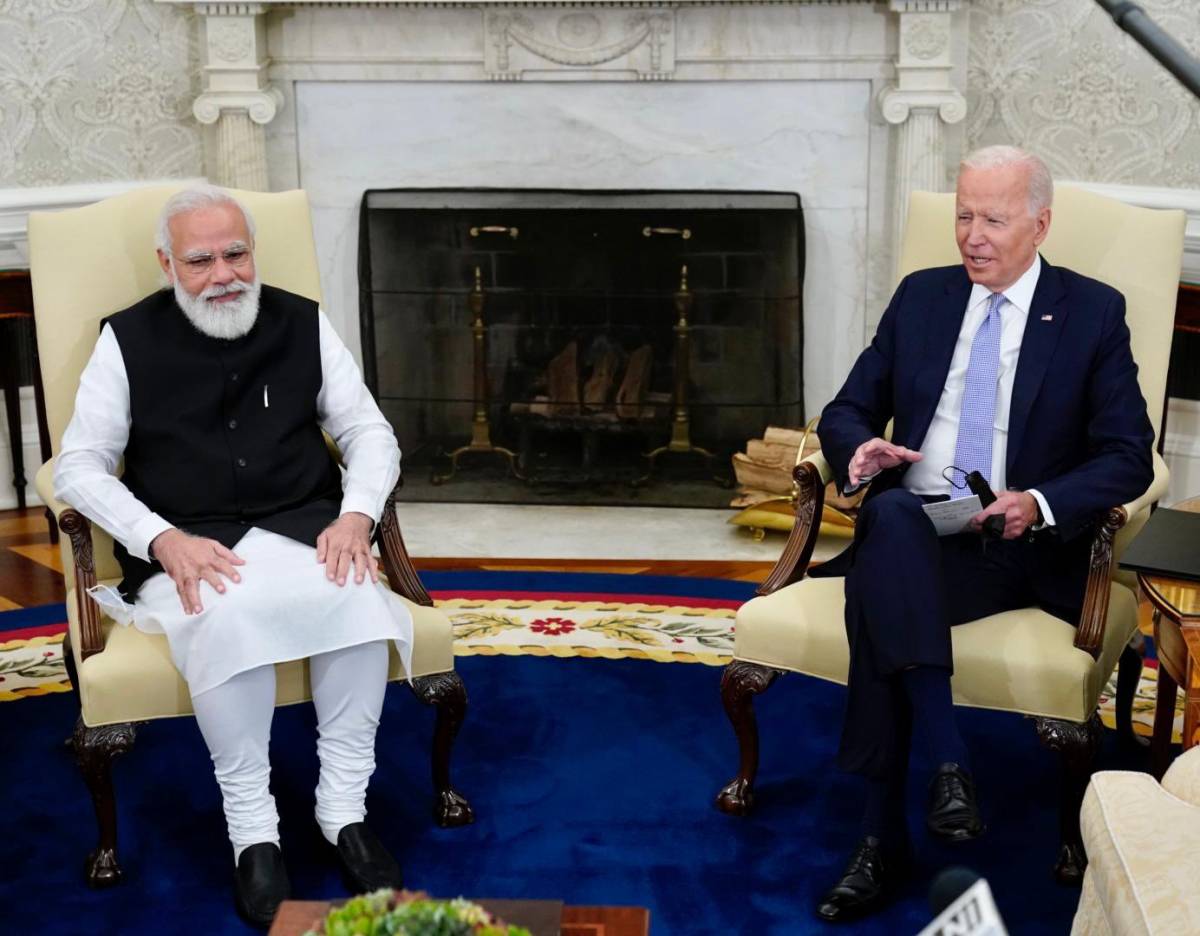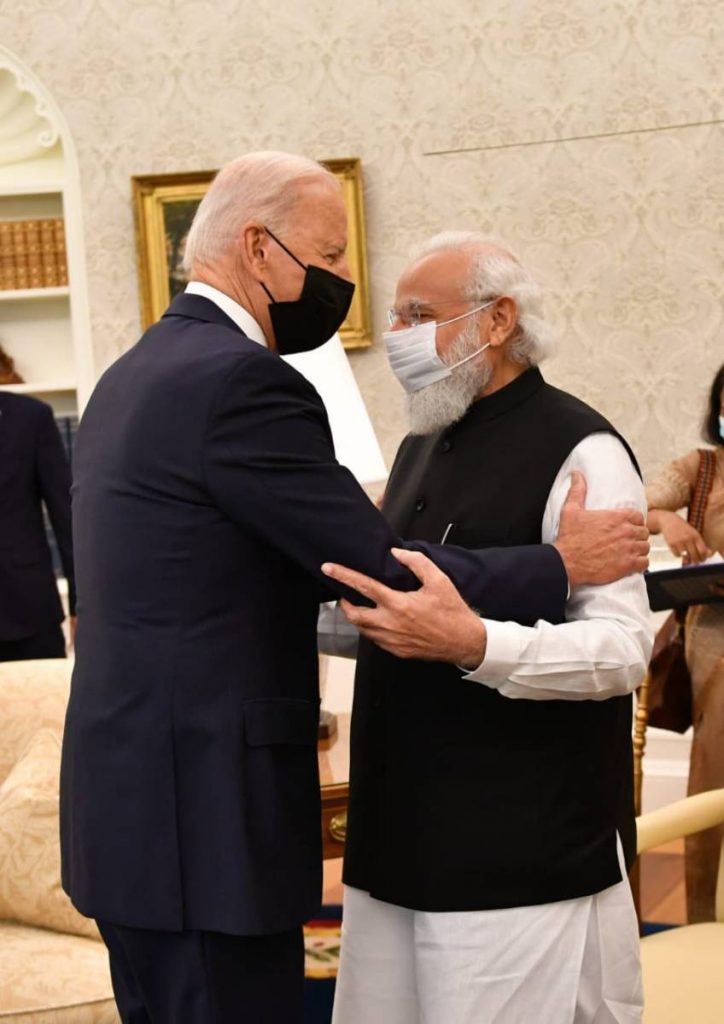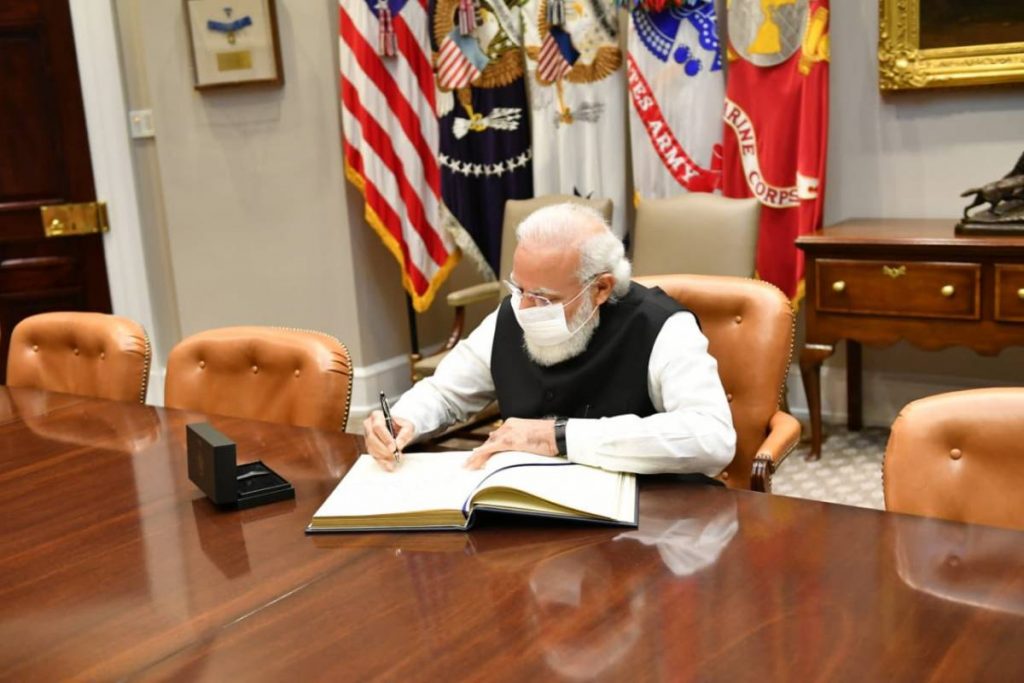PM Modi and Presidient Biden noted a multi-year initiative of Microchip Technology, Inc, to invest approximately $300 million in expanding its research and development presence in India and Advanced Micro Device’s announcement to invest $400 million in India over the next five years to expand research, development, and engineering operations in India.
India and the US on Friday, while sharing a vision of secure and trusted telecommunications, resilient supply chains, and global digital inclusion, welcomed the signing of a pact between Bharat 6G Alliance and Next G Alliance, operated by Alliance for Telecommunications Industry Solutions, as a first step towards deepening public-private cooperation between vendors and operators.
In a joint statement issued by India and the US after the bilateral discussions between Prime Minister Narendra Modi and US President Joe Biden, the endeavour towards building resilient global semiconductor supply chains was re-emphasised.
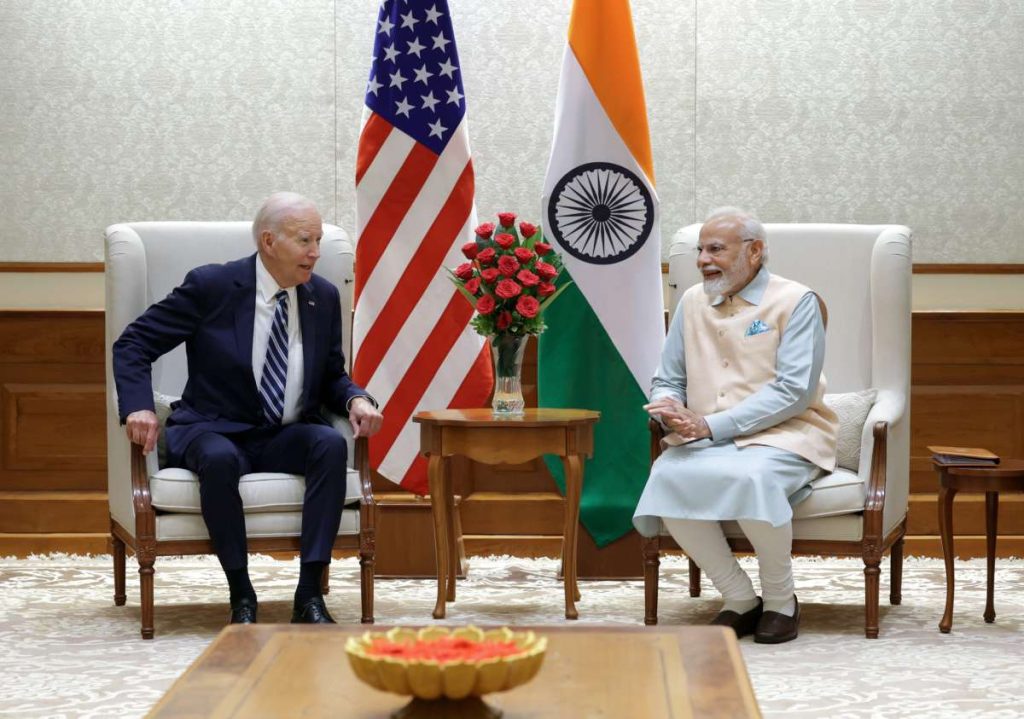
In this respect, the two leaders noted a multi-year initiative of Microchip Technology, Inc, to invest approximately $300 million in expanding its research and development presence in India and Advanced Micro Device’s announcement to invest $400 million in India over the next five years to expand research, development, and engineering operations in India.
The leaders welcomed completion of the Congressional Notification process on August 29 and the commencement of negotiations for a commercial agreement between GE Aerospace and Hindustan Aeronautical Ltd (HAL) to manufacture GE F-414 jet engines in India, and recommitted to work collaboratively and expeditiously to support the advancement of this unprecedented co-production and technology transfer proposal.
Biden congratulated Modi and the scientists and engineers of the Indian Space Research Organisation (ISRO) on Chandrayaan-3’s historic landing at the south polar region of the Moon, as well as the successful launch of India’s first solar mission, Aditya-L1.
Having set a course to reach new frontiers across all sectors of space cooperation, the leaders welcomed efforts towards establishment of a Working Group for commercial space collaboration under the existing India-US Civil Space Joint Working Group.
“Determined to deepen our partnership in outer space exploration, ISRO and the National Aeronautics and Space Administration (NASA) have commenced discussions on modalities, capacity building, and training for mounting a joint effort to the International Space Station in 2024, and are continuing efforts to finalise a strategic framework for human space flight cooperation by the end of 2023,” the statement said.
India and the US also intend to increase coordination on planetary defence to protect the Earth and space assets from the impact of asteroids and near-Earth objects, including US support for India’s participation in asteroid detection and tracking via the Minor Planet Center, it added further.
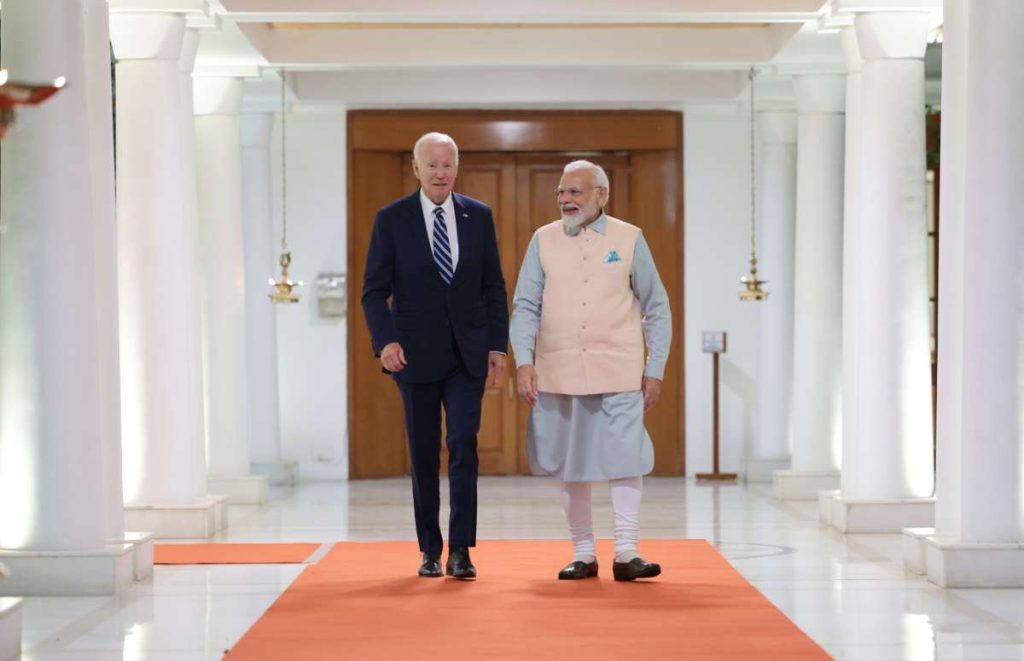
The leaders expressed satisfaction at the ongoing implementation of announcements made in June 2023 by US companies, Micron, LAM Research, and Applied Materials.
They further acknowledged the setting-up of two joint task forces focussed on collaboration in the field of Open RAN and research and development in 5G/6G technologies.
A 5G Open RAN pilot in a leading Indian telecom operator will be undertaken by a US Open RAN manufacturer before field deployment. The pact was signed in the presence Modi and Biden.
The two leaders reaffirmed technology’s defining role in deepening their strategic partnership and lauded ongoing efforts through the India-US Initiative on Critical and Emerging Technology (iCET) to build open, accessible, secure, and resilient technology ecosystems and value chains, based on mutual confidence and trust, which reinforce shared values and democratic institutions.
The US and India intend to undertake a midterm review of iCET in September to continue to drive momentum toward the next annual iCET review, co-led by the National Security Advisors of both countries, in early 2024, the statement added.
The leaders lauded the settlement of the seventh and last outstanding World Trade Organisation (WTO) dispute between them. This follows the unprecedented settlement of six outstanding bilateral trade disputes in the WTO in June.
During their meeting, which took place shortly after Biden landed in India to participate in the G20 Summit, the two leaders continue to look forward to the participation of Indian companies in the US Rip and Replace Program, and the President also welcomed India’s support for a Rip and Replace pilot in the US, according to the joint statement.
“The United States reiterated its commitment to working together with India in the quantum domain, both bilaterally and through the Quantum Entanglement Exchange, a platform to facilitate international quantum exchange opportunities; and welcomed the participation of India’s S.N. Bose National Centre for Basic Sciences, Kolkata, as a member of the Quantum Economic Development Consortium. It was also recognised that the Indian Institute of Technology (IIT) Bombay joined the Chicago Quantum Exchange as an international partner,” the statement added.
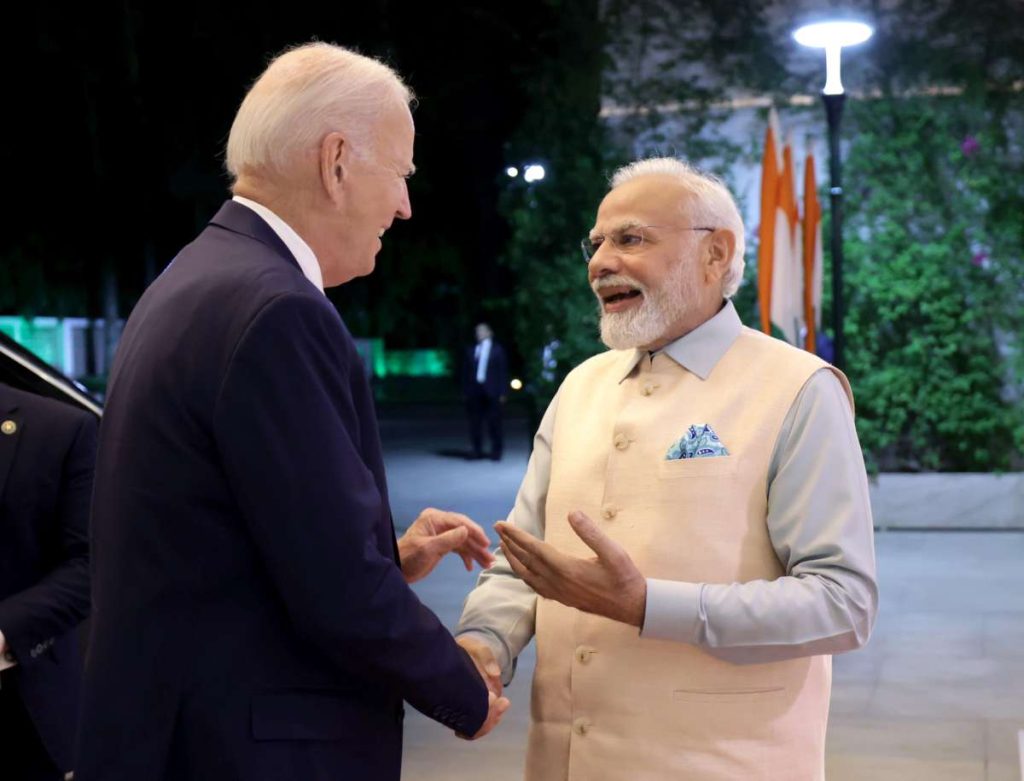
The leaders applauded the conclusion of a second Master Ship Repair Agreement, with the most recent agreement signed by the US Navy and Mazgaon Dock Shipbuilders, Ltd, in August.
Both sides recommitted to advancing India’s emergence as a hub for the maintenance and repair of forward-deployed US Navy assets and other aircraft and vessels. The leaders also welcomed further commitments from US industry to invest more in India’s maintenance, repair, and overhaul capabilities and facilities for aircraft.
President Biden welcomed the issuance of a Letter of Request from the Indian Defence Ministry to procure 31 General Atomics MQ-9B (16 Sky Guardian and 15 Sea Guardian) remotely piloted aircraft and their associated equipment, which will enhance the intelligence, surveillance and reconnaissance (ISR) capabilities of India’s armed forces across all domains, the statement said.
Reiterating the importance of nuclear energy as a necessary resource to meet the two nations’ climate, energy transition, and energy security needs, Modi and Biden welcomed intensified consultations between the relevant entities on both sides to expand opportunities for facilitating India-US collaboration in nuclear energy, including in development of next generation small modular reactor technologies in a collaborative mode.
The US reaffirmed its support for India’s membership in the Nuclear Suppliers Group and committed to continue engagement with like-minded partners to advance this goal.
The leaders welcomed the inaugural meeting of the India-US Renewable Energy Technologies Action Platform (RE-TAP), in August, under which the two countries will engage in lab-to-lab collaboration, piloting, and testing of innovative technologies; collaboration on policy and planning to advance renewable energy and enabling technologies; investment, incubation and outreach programmes; and training and skill development to accelerate the uptake and adoption of new and emerging renewable technologies and energy systems.
Reiterating the importance of decarbonising the transport sector, the leaders welcomed progress to expand electric mobility in India, including joint support for a payment security mechanism financed through both public and private funds. This will accelerate the procurement of 10,000 made-in India electric buses including those for the Indian PM e-Bus Sewa programme that will include the associated charging infrastructure.
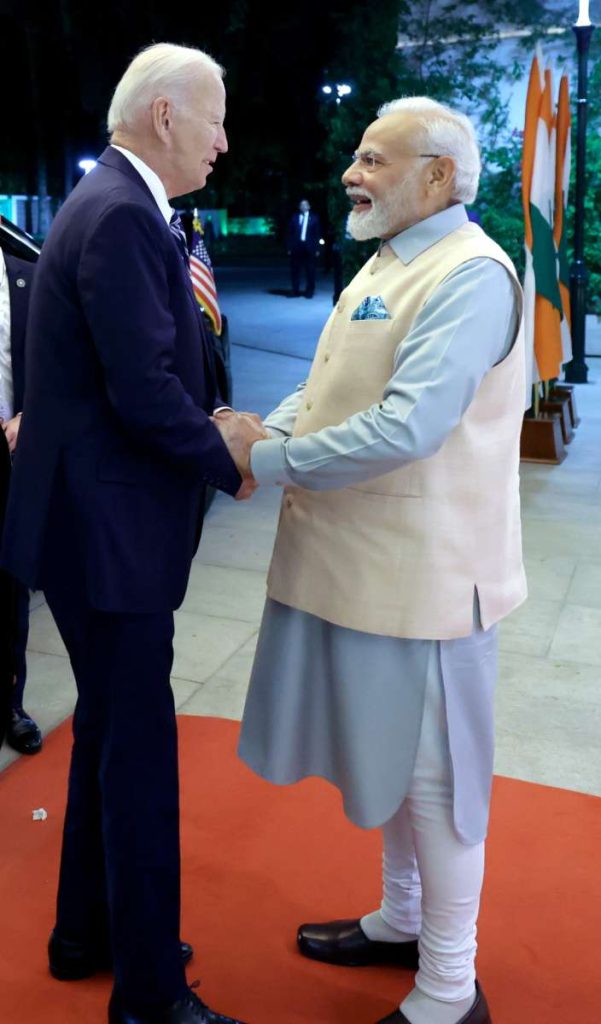
The two countries are committed to working together to help diversify the global supply chain for e-mobility. India and the US are also advancing the creation of investment platforms to lower the cost of capital and accelerate the deployment of greenfield renewable energy, battery storage and emerging green technology projects in India.
Towards this end, India’s National Investment and Infrastructure Fund and the US Development Finance Corporation exchanged letters of intent to each provide up to $500 million to anchor a renewable infrastructure investment fund.
Modi and Biden also hailed the signing of an Implementation Arrangement between the US National Science Foundation (NSF) and India’s Department of Biotechnology to enable scientific and technological research collaborations in biotechnology and biomanufacturing innovations. They welcomed the call for proposals released by NSF and India’s Ministry of Electronics and Information Technology to foster academic and industrial collaboration in semiconductor research, next generation communication systems, cyber-security, sustainability and green technologies, and intelligent transportation systems.
“Reaffirming their commitment to building resilient technology value chains and linking defence industrial ecosystems, the leaders recommitted their administrations to promoting policies and adapting regulations that facilitate greater technology sharing, co-development, and co-production opportunities between Indian and US industry, government and academic institutions,” the joint statement said.
They also welcomed continued engagement through an inter-agency monitoring mechanism under the auspices of the bilateral Strategic Trade Dialogue, launched in June 2023. The leaders welcomed the signing of an MoU between Indian universities, represented by the Council of Indian Institutes of Technology (IIT Council), and the Association of American Universities (AAU) to establish the India-US Global Challenges Institute, with a combined initial commitment of at least $10 million.
The Global Challenges Institute will bring together leading research and higher-education institutions from across our two nations, including beyond AAU and IIT membership, to advance new frontiers in science and technology, spanning collaboration in sustainable energy and agriculture, health and pandemic preparedness, semiconductor technology and manufacturing, advanced materials, telecommunications, artificial intelligence, and quantum science. B
iden and Modi also welcomed the growing number of multi-institutional collaborative education partnerships, such as those between New York University-Tandon and IIT Kanpur Advanced Research Center, and the Joint Research Centers of the State University of New York at Buffalo and IIT Delhi, Kanpur, Jodhpur, and BHU, in the areas of critical and emerging technologies.
The leaders affirmed the importance of efforts to close the gender digital divide in the digital economy, noting a G20 commitment to halve the digital gender gap by 2030 and expressed support for the Women in the Digital Economy Initiative, which brings together governments, private sector companies, foundations civil society and multilateral organisations to accelerate progress toward the closure of the digital gender divide, the joint statement added.
ALSO READ: ‘Putin’s absence in G20 is consequence of tensions with G7’

